That Petrol Emotion - Interview
by Denzil Watson
published: 28 / 7 / 2009
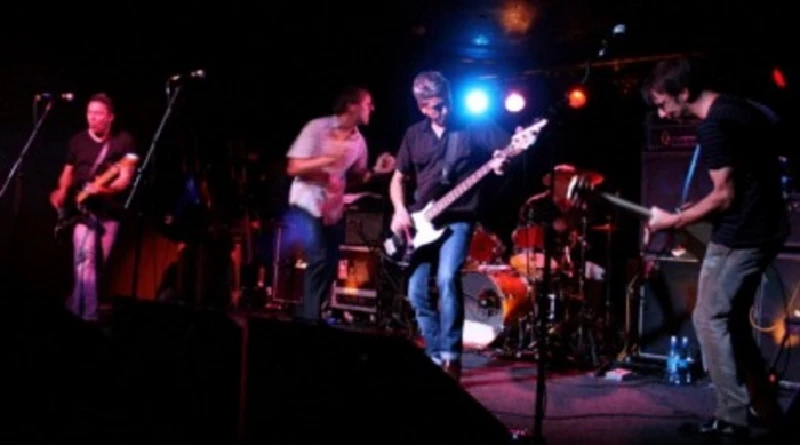
intro
At a show in Nottingham, Denzil Watson speaks to vocalist Steve Mack and guitarist Raymond Gorman from 80s angular guitar pop outfit That Petrol Emotion about their critically acclaimed band and its recent reformation after an absence of nearly fifteen years
Nowadays it's easier to count the indie and post-punk bands from the 70s and 80s that haven't reformed rather than those that have. In many cases 'getting the band back together' tends to be more about the filthy lucre than enhancing musical legacies and it's not difficult to think of more than a handful bands that perhaps should have just let it lie. I mean, come on. Any takers for the Kajagoogoo reunion? Thought not. One band that you couldn't level any such accusations at for rekindling the flame is Ireland's That Petrol Emotion. Their ten year career saw the Petrol's angular but melodic brand of guitar-fuelled pop win many converts via their energetic live shows and five excellent albums. 1985's ‘Manic Pop Thrill' with its frantic buzzing guitars and experimental Beefheartisms and 1990's ‘Chemicrazy’, a pure hook-laden pop jewel, are probably the pick of the bunch. Sadly record sales and commercial success failed to match the widespread critical acclaim they garnered and the band, which , which consisted originally of Raymond Gorman (guitar), Ciaran McLaughlin (drums) and Undertones members, John(guitar, replaced by John Marchin from 1988 to 1991, and then Brendan Kelly from 1991) and Damian O’Neill (bass, switched to guitar in 1988), went their separate ways in 1994. Until last year that is. In March 2008 the Seattle-born front-man Steve Mack announced the bandwere to reform to play reunion concerts that summer. Three successful gigs later and a handful of well received dates turns into a fully blown tour of the UK in July this year. With four gigs already under their belt I caught up with Steve Mack and Raymond Gorman shortly before stage time at a gig at the Nottingham Rescue Rooms. In relaxed mood and clearly enjoying the tour so far they were in talkative form. PB: You tested the water first of all back at the Dirty Water Cub in London last year. I guess you must have liked what you saw? SM: It was a warm up. We had a gig in Ireland and we knew we had to play some warm-up gigs and we wanted to play London because that’s where all of our mates are and we have a big following there. So we phoned up a friend of a friend of a friend and said, "we want a gig but we don’t want to announce it". We were quite nervous frankly. PB: What did it feel like when you first came out on stage? RG: It was really special that night. For me it was a bit like my wedding. One of those days where everything goes perfectly. I didn’t really worry, I just enjoyed everything. Everybody was having such a good time and I was having such a good time. I was kind of looking at it as an impartial observer but just enjoying everything. PB: How's the tour gone so far? RG: Really great, fantastic. PB: I ask because I know you were a little bit worried about the publicity before the tour started. RG: There hasn’t been any! So I think we’ve done really well given it’s not been publicised very much. There’s been no one working on our behalf so it's kind of word of mouth and people just doing publicity themselves on their websites. Some guy came up with a really great tour poster. If we’re going to do this sort of thing we can’t do it through the normal channels. That’s kind of boring anyway, the sort of same old tour/record/tour thing. We can't really do that sort of thing anyway because we’ve all got jobs and we’ve got to work around that. PB: Has it been like when you first started out putting together DIY tours? RG: Yeah, except for back then none of us were working except for Steve so you could devote all of your energy to it. Whereas now you’ve got family and jobs. SM: Like trying to get time at night to log on. There’s all this e-mail that you have got to answer. It’s flattering to think that people take time out of their day to write us an e-mail so of course we’re going to reply. But it’s like having a job, a family and another job. We’re doing it because we love it and we’ve been blessed that we’ve got a second chance to do it and we’re having a ton of fun doing it. But it’s hard trying to sync up five grown men’s schedules with their families RG: Over three continents. PB: Is it strange being back on tour on the bus and in hotels day after day? RG: Not at all. I’ve really missed it. It’s different now. You get to a certain level and everything’s laid out for you and you get a bit spoilt. I think for some reason, whatever the karma of this band is, it seems like we’re starting from scratch. But for some reason the journey is kind of more important than the destination. PB: Are you enjoying playing all these songs again for the first time in over ten years? RG: Yeah, sure, fantastic. SM: It’s going to sound self serving but I honestly do believe that we’re better now. Having half a lifetime of maturity under your belts means you're singing and playing comes from a completely different headspace. I know it sounds kind of crappy to say that but it’s totally true. I don’t have anything to prove anymore. I’m a successful businessman, husband, individual and musician. I’m not trying to please anyone but myself. So when every night I’m going up against my image of myself and all my past performances and we’re all playing together, locking together and it’s a lot more fun. And we swing, probably as we’re not doing as many drugs as we used to do, and I think we’re locking together as a band and it’s more powerful than it ever was. PB: But to be honest you were always a very powerful live band. SM: But we’re even better now. We are!!! RG: You’ll see tonight. The thing for us getting back together again is that we get on and have a lot of fun. Most bands hate each other and are only doing it for the money and I think you can tell. Unfortunately because so many people are getting back together you’re being judged by the same sort of criterion. But it doesn’t really apply to us. PB: It’s now easier to count the bands that have not got back together, isn’t it? RG: Yeah, and the ones that can’t reform is because somebody’s dead. SM: And I would be lying if I didn’t say that wasn’t the sort of genesis of this. Seeing some crap bands that will remain nameless getting back together and going, “Fuck! That’s not fair, they sucked back then and they suck now!” On the other side it’s seeing bands like Killing Joke and Gang of Four reform and be as good if not better than they used to be and saying, “We could do it that way”. We saw each other fairly regularly, every couple of years or so, and we'd always tossed it around but then after we all went out and saw Gang of Four we all started to get that itch and think, “We’ve just seen a band that are older than us and they kicked our ass” and I thought we can do that, so….. PB: I remember back in the late 80s you used to be a big draw as a live band, one that could easily sell out the Town and Country Club in London for example, but, however you never really had the chart success you deserved, did you? RG: We just had bad luck. We were on different labels and that didn’t help really. We didn’t have on continuous label and we changed between ‘Babble’(Polydor,1987-Ed) and ‘End of the Millennium Psychosis Blues’(Virgin, 1988-Ed). And ‘Babble’ was Rolling Stone's record of the year but we’d already left the record company so they didn’t want to promote us and Virgin didn’t want to do any promotion as it wasn’t their record so we completely fell in the middle and I think that momentum was definitely lost. PB: And then you wrote the best album of your career with ‘Chemicrazy’and Virgin dropped you! RG: To be honest Virgin were very good with us. They more or less gave us the record that became ‘Fireproof’ (1993-Ed) as we’d already recorded half of it. They could have really stitched us up but they didn’t. SM: They said, “Look, have the tapes, good luck”. RG: There was no malice involved. It was just a complete business arrangement for them. They put a lot into the band and you can’t blame them. SM: At one point we were minus millionaires! Considering the way our records sell I’m sure we still owe them some of that money. As easy as it would be for us to blame the record company as some machinations of the music industry, it’s like people didn’t buy the fucking records for whatever reason and that’s OK. PB: But you must have shifted serious units compared with today’s standards? SM: No we didn’t! RG: The first two records sold pretty well by today’s standards but not the rest of them. I don’t really know what it was really. People’s perception of us was always really bizarre. People think that it’s difficult music but it’s not difficult at all. It’s because not every single song sounds the same like most bands. People were confused by that. I thought that was a virtue. PB: Do you think it was because you dealt with a lot of political issues of the time when all the fey indie bands wouldn’t go anywhere near them? SM: I don’t think so because at the time it got us a shit load of press. In the beginning the ‘NME’ loved us because of that. It was like, “Oh my God, tell us more about Ireland you cute little Irish people”. And I’m like, “I’m American!” RG: It kind of became a stick to beat you with because whenever you start talking about it, it becomes the way they portray you. When you’re talking about these sorts of things in a pub like this and you’ve been drinking and somebody asks you a question that’s really ignorant you react to it. We came across really badly, as sort of serious-mined people when really we just have a laugh, so that really worked against us. It’s just a perception like “Oh they’re just dour politicos”. PB: One thing that is quite astonishing is the amount of people who have heard of The Undertones and the O’Neill brothers and go, “That Petrol who?” SM: We’ve spent a lot of the time banging our heads against the walls going, “Why isn’t it happening?” but you just have to be Zen about it. It is what it is and we tried our best and we got to live our dream for ten years. PB: And ultimately you are judged on your musical back catalogue and in your case it all stands up pretty well. The songs haven’t really dated, have they? RG: What we really need to do is to try and get it all together and put out a compilation. Because it’s all on different labels it’s all very difficult. It’s a licensing nightmare. PB: Didn’t you release a career spanning compilation CD on US label Rykodisc? SM: There was a compilation that Rykodisc managed to get the rights to on the understanding it was for promotion purposes only. On the back it says courtesy of Demon Records, courtesy of Polydor Records and so on. I think we could very likely do something like that again. One of the other things that fuelled our desire to get back together was to set the record straight. Instead of ‘unnamed’ magazine doing a retrospective and going, “What a great back catalogue” they give us a “What the hell happened to them?” and then they say, “We don’t know”. I’m all over the internet. You google my name and I’m doing all kinds of shit. Not in the music world but if they wanted to find us they could. We have a MySpace page. They could have found us and asked us what we are doing but nobody cared!! RG: They’re [journalists] just lazy. They want everything just handed to them nowadays. A lot of journalists these days don’t want to do any research and they just want you to give it to them. It’s like when I was doing this gig in Paris with the Wavewalkers (Raymond’s next band-Ed) they all loved it and afterwards I had about fifteen journalists all asking me for a press release and I went, “Look I’ve only been going for about six months, we don’t have anything”. And not one of them wrote a thing about the gig. If we did have a press release they would have just regurgitated it and we would have had loads of press. What happened to the spirit of the fanzine? No one does that sort of thing anymore. PB: It’s like in Nottingham now. There was massive record shop called Selectadisc that used to stock fanzines but it went bust. RG: They went bust in London as well. SM: But that’s because we value plastic shinny discs. Interestingly enough one of the other hats I wear is that I do a lot of work in the music industry in the US, not for the record companies, but on the artistic side for the people who give out the Grammies every year. I’m involved with them and we’re trying to figure out how artists are going to make money in this millennium because it’s clear it's not going to be from physical sales and not everybody can gig. I mean, there are some great musicians who just can’t get in a van and tour. And let’s face it – we’re not making any money from this tour. This is our holiday. We take our holiday and spend it in the North of England playing to you, so you better fucking appreciate this! We had a panel for discussion with these kids from fifteen up to nineteen years old and we were asking them what can we do to make them buy music rather than downloading it for free and they’re like, “put it out on seven inch” and we went [double taking], “put it out on seven inch? How many of you have a turntables?” And every single one of them had a turntable. And they said, “we’ll pay $5 for a seven inch because you get something physical and you can take it home. We’re never going to pay for iTunes because it’s just an mp3!” Which I think is fantastic. That’s a really great attitude for them to have! PB: Coming back to your music, one thing that strikes me is that the songs have not dated one jot. RG: No they haven’t. It’s really interesting. Obviously it's brilliant from our point of view because we’re not tired of them. PB: The issues they were about haven’t really gone away, have they? RG: It’s because they were about personal stuff that’s general for everybody and that’s always the best kind of music. It’s not tied to a particular period or kind of fashion sense so it’s great from that respect. PB: It’s like when I went to see the Specials the other month. All the things they were singing about like economic hardship and racism, all these things are relevant right now. RG: It’s 1979 again. It’s the same problems as thirty years ago. SM: It’s fascinating to have been alive long enough to see the cyclical nature and now we’re diving into a recession and hopefully that means we’re going to have a new punk rock so I’m very excited. RG: I think people deep down really want a change and are fed up with a lot of things and won’t put up with them. I don’t think they’re all going to be out on the streets burning anything down, well not right now anyway, but I think people are really reacting to these super rich elite and I don’t think that can continue any more. PB: Not too many artists are overtly political, are they? It’s left up to the likes of Billy Bragg isn’t it? RG: I never really liked him to be honest. That’s like a red flag to a bull for me. He makes me want to vote Tory. SM: Oh, shhhhh! He’s a very nice man and we love him. Honestly, we used to play a lot of festivals with him and he’s a great bloke to have a beer with. I never bought his records, not really my style. He kind of sounds like a donkey. But a champion man and a great person to have a beer with. RG: Anyone who’s quite political in music people don’t tend to like it. It immediately sets everybody’s hackles up. You've got an opinion and you’ve either got to agree with it or disagree with it. Back then things were a lot more clear cut. Look at the three political parties we’ve got here now – they’re three centrist parties. So there’s not really much difference. We were talking about this the other day. All the old lefties still feel the same way but feel kind of marginalised at the end of the day. SM: We had eight years of a fucking monkey for a president. Green Day, that last record is very political on a very subtle personal level – “don’t want to be an American idiot”. It’s a great lyric and a great song. Eminem put out a couple of tracks on his last album that were totally bitch-slapping Bush. And of course Tom Waits, Warren Zevon and Randy Newman. There’s been a lot of reaction to all that and I think there’s still a lot of people who care about these things. But at the end of the day pop music is pop music and politics isn’t in pop any more. RG: It’s got to be like the Specials. It’s got to be engaging but it’s got to be good music first and that was the thing with us. Everyone expected us to be writing these diatribes. It’s fairly easy but you feel quite uncomfortable doing that. It has to be from a personal point of view. I’m glad we didn’t really go down that road you know. PB: In terms of your studio output, ‘Chemicrazy’ is one of the greatest pop albums of all time: SM: I agree! RG: I’m glad you think so. We’re going to remix it some time. SM: We had this idea the other night. We realised that one of the problems with our albums is that we’d spend a lot of time making these records. At the end of which the producer would spend all his time removing the drums and replacing them with samples. There’s a version of ‘Chemicrazy’ you’ve never heard with all Ciaran’s drumming on it. And I’m sure it’s a better fucking record. You listen to ‘Mess of Words’ and it’s got the natural drums on it and it just swings so much better. PB: How did Ciaran feel about all this? RG: He’s pissed off. That’s three records it happened on. Three records he’s worked his ass off and there’s nothing of him on there. PB: It just rips the soul out of the record from the drummer’s point of view, doesn’t it? SM: Yes, it does. And that’s why until today Fireproof’[ and ‘Final Flame’ are the only two Petrols records I even can bear listening to because that’s the sound of us. RG: Yeah, me too. SM: In a room making a big clanging racket. These other things producers did to us is just a real shame. You’re twenty two years old and you don’t know any better. And you're told, “This is going to be good” and you’re ,“OK, right”. PB: I’d say that ‘Manic Pop Thrill’ was also the sound of That Petrol Emotion. When you look back at it it’s an astounding debut album, isn’t it? RG: It takes me along time to have any kind of objectivity on it and I listened to it a while ago and I thought it has a great sense of energy to it. I thought some of the songs were great but it had a great energy and I was really pleased about that. PB: It takes a lot of band’s three or four albums to get to that stage. SM: I think it’s really cute. We were really ambitious. On one album we went from ‘Cheapskate’ to ‘Natural Kind of Joy’ to ‘Blind Spot’ and everything in between and we just thought that we could do that and we kind of did – even though I look back on ‘Cheapskate’ and think, “Ahhh, that’s not great really”. But at the same time I’m really proud of that record. RG: Yeah, me too. It’s natural sounding. PB: There's an organic sound to it, isn't there? RG: It was done quite quickly. PB: It was quite aptly named really then? RG: Yeah, it was of that period. PB: Okay, well I think you know what the last question is going to be, don’t you? SM: I think so. PB: Where do you go from here when the tour’s finished? SM: The day after tomorrow we are going to be out on the moors. We have a day off in the Lake District and we're going to have a group huddle and try and figure out what we do now. I mean, getting together for a tour is difficult enough. Getting together to write and record would be an enormous effort for us. But I have published books on the internet. Perhaps we can figure out a way of using technology to do it. I think the short answer is as long as it’s fun, were going to keep on doing it! And with that excellent news for Petrols fans they're off to get ready for their appearance. It's only a few songs into tonight's fifteen song set that it becomes clear that Steve Mack's earlier claim that they are a tighter band than before is no idle boast. They go down well in front of the hundred plus crowd as they equal if not surpass their past live endeavours. Unsurprisingly they draw heavily on their ‘Chemicrazy’ album with a few oldies (‘Lifeblood’ and ‘It's a Good Thing’) thrown in for good measure. Mack yelps, high-kicks and bounces round the stage with the unpretentious enthusiasm he has always exuded. Raymond Gorman and Damian O'Neill's guitars slash and fizz as they interplay to maximum effect while Ciaran McLaughlin and Brendan Kelly on bass keep it tight at the back. It's a convincing performance that fully justifies the band's reformation. Hopefully it won't be the last time we see this innovative and underrated quintet. More info at: http://www.thatpetrolemotion.com The photographs that accompany this article were taken by Denzil Watson
Picture Gallery:-
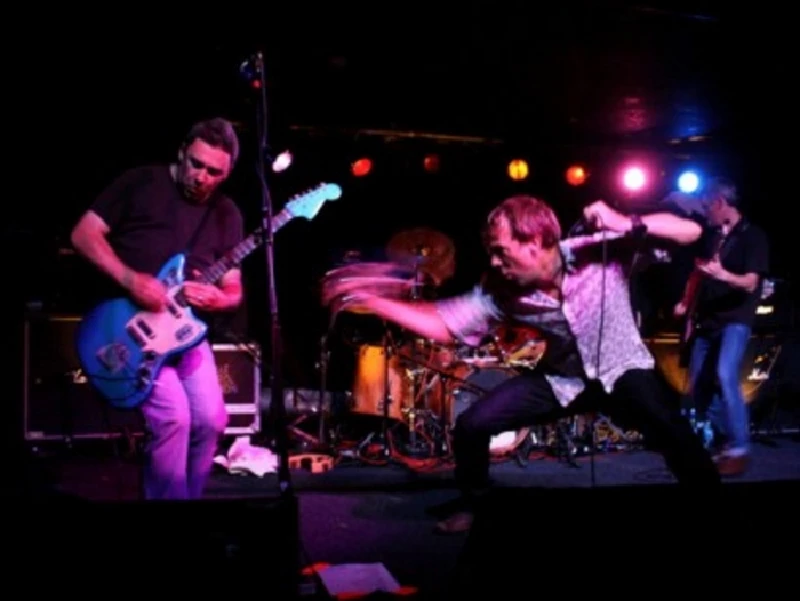
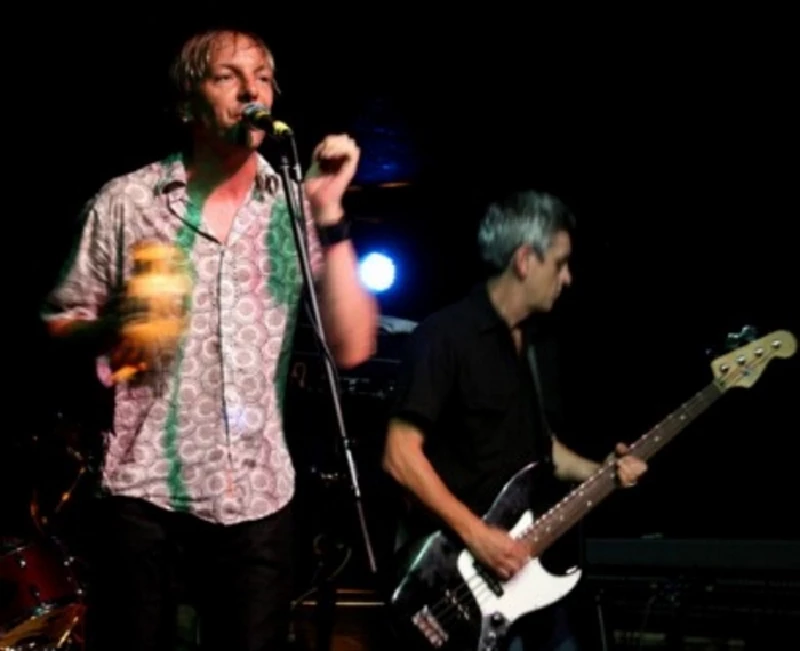
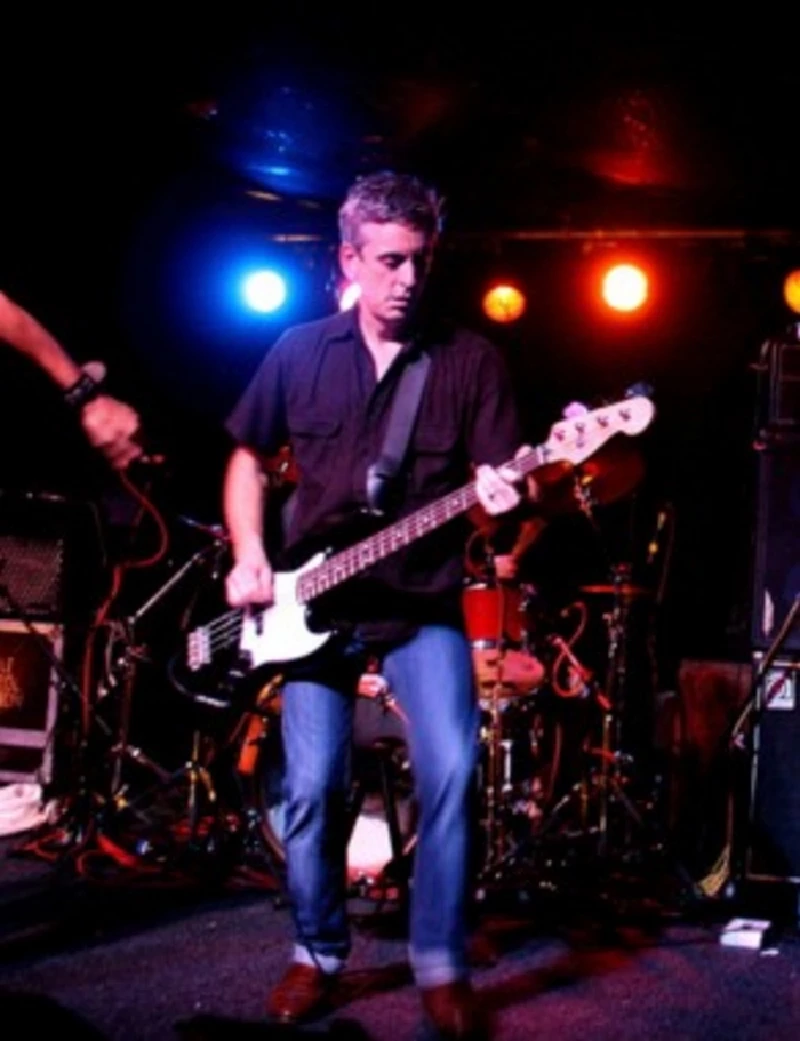
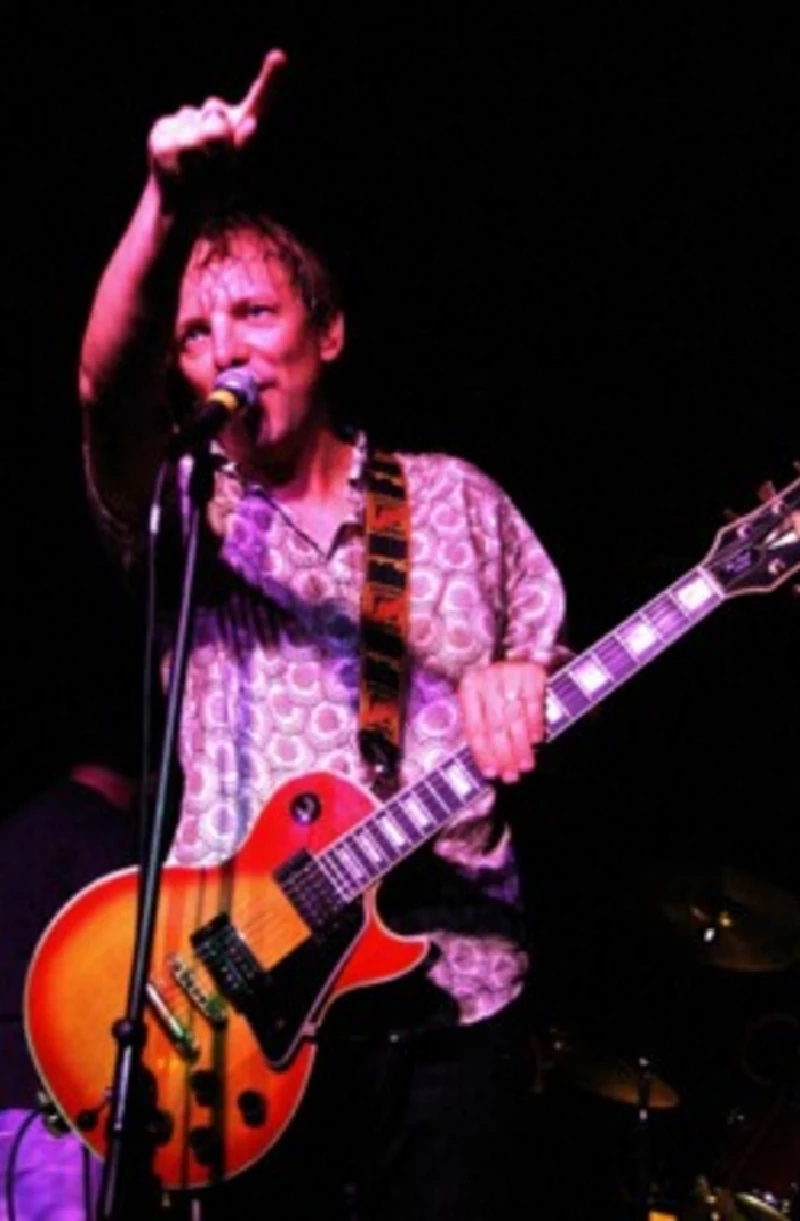
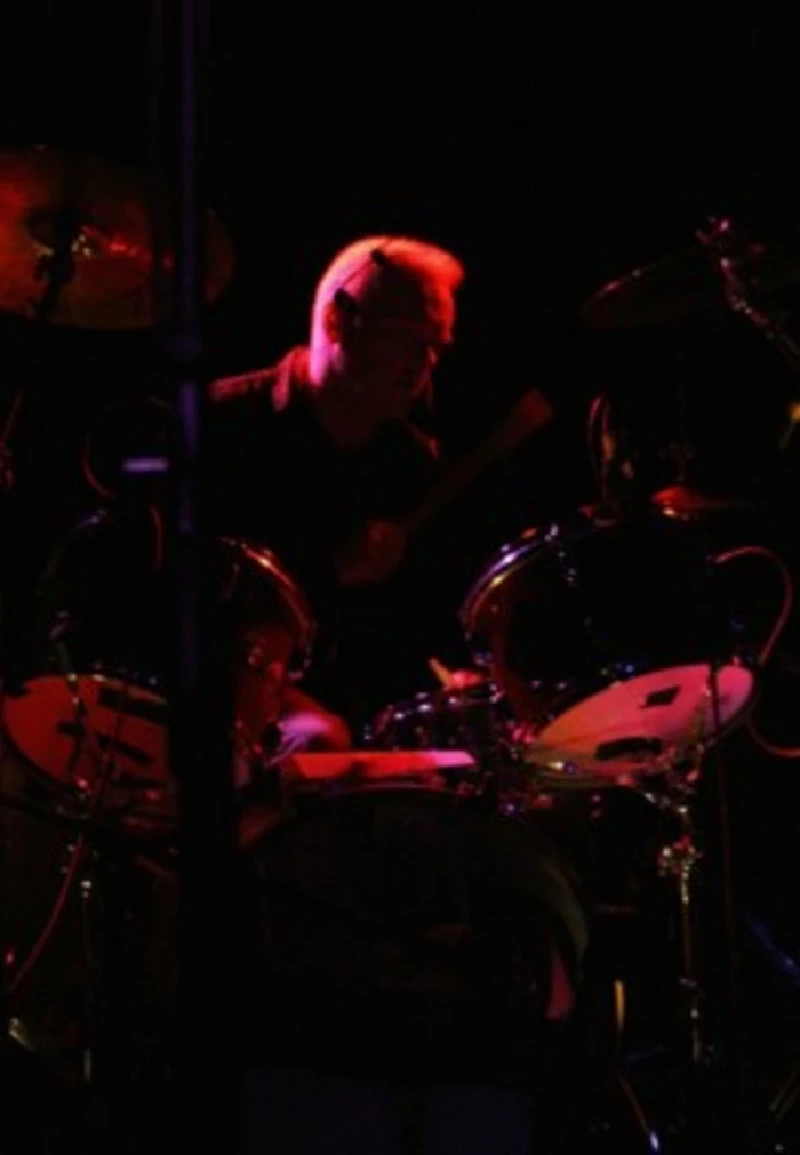
Visitor Comments:- |
| 211 Posted By: Stefan, Birmingham on 17 Aug 2009 |
|
The Petrols were and STILL are one of the best bands around. Try and catch 'em live if you can now they're back together.
|
favourite album |
|
Babble (2002) |
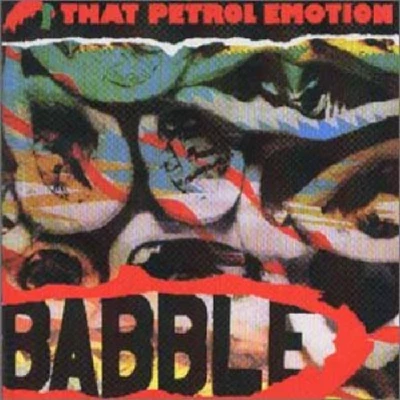
|
| Every now and again a band comes along that refashions the very fabric that rock'n'roll's rich tapestry is made from. And, as is the way, it is more often than not that it is these innovatory forces t |
features |
|
That Petrol Emotion, Town and Country Club, London, 1988 (2014) |
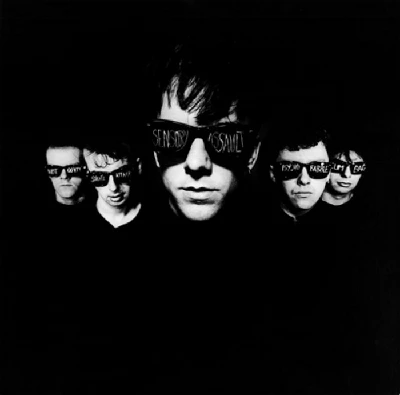
|
| In our 'Gig of Our Lifetime' column, Denzil Watson writes of attending a gig with Californian/Irish alt. rockers That Petrol Emotion at the legendary Town and Country Club in London |
most viewed articles
current edition
Carl Ewens - David Bowie 1964 to 1982 On Track: Every Album, Every SongArmory Show - Interview with Richard Jobson
John McKay - Interview
Colin Blunstone - Thalia Hall, Chicago, 16/7/2025
Billie Eilish - O2 Arena, London, 10/7/2025
Bathers - Photoscapes 1
Visor Fest - Valencia, Spain, 26/9/2025...27/9/2025
Loft - Interview
Sir Tim Rice - Interview
Robert Forster - Interview
previous editions
Manic Street Preachers - (Gig of a Lifetime) Millennium Stadium, Cardiff, December 1999Heavenly - P.U.N.K. Girl EP
Beautiful South - Ten Songs That Made Me Love...
Boomtown Rats - Ten Songs That Made Me Love....
Peter Perrett - In Dreams Begin Responsibilities Interview Part One
Oasis - Oasis, Earl's Court, London, 1995
Trudie Myerscough-Harris - Interview
Coldplay - Wembley Arena. London, 16/8/2022
Prolapse - Interview
Pixies - Ten Songs That Made Me Love...
most viewed reviews
current edition
Davey Woodward - Mumbo in the JumboSick Man of Europe - The Sick Man of Europe
Lucy Spraggan - Other Sides of the Moon
Suzanne Vega - Flying With Angels
Amy Macdonald - Is This What You've Been Waiting For?
Phew, Erika Kobayashi,, Dieter Moebius - Radium Girls
Bush - I Beat Loneliness
Blueboy - 2
Alice Cooper - The Revenge of Alice Cooper
Cynthia Erivo - I Forgive You
related articles |
|
Damian O'Neill: Interview (2018 |

|
| Denzil Watson talks to Undertones and That Petrol Emotion guitarist Damian O'Neill about his debut solo album 'Resit Revise Reprise', which is being released under the moniker of Damian O’Neill and The Monotones. |
Pennyblackmusic Regular Contributors
Adrian Janes
Amanda J. Window
Andrew Twambley
Anthony Dhanendran
Benjamin Howarth
Cila Warncke
Daniel Cressey
Darren Aston
Dastardly
Dave Goodwin
Denzil Watson
Dominic B. Simpson
Eoghan Lyng
Fiona Hutchings
Harry Sherriff
Helen Tipping
Jamie Rowland
John Clarkson
Julie Cruickshank
Kimberly Bright
Lisa Torem
Maarten Schiethart